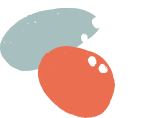

Domain Experts as Instructors
Hybrid Educational Model
Placement Support
Deliverables
Learn how to become an UI/UX Designer with User Interface Design, User Experience Design.
Introduction to UI/UX Hands-on
Graphic Design
UI/UX Tools for success
UX Design
UI Design
Optimization
UX project
UI/UX essentials

Serving Fortune 500 companies to Middle-market clients & Federal Government agencies, Radiant Digital Empowers & Recruits Visual Communicators.
Radiant Talent Academy - The Training Wing of Radiant Digital Solutions, has courses outlined to train professionals in UI/UX designing for successful project execution or career growth. The industry-focused UI/UX curriculum is designed and imparted by expert and experienced professionals. Also, Radiant Academy supports students' placements in-house and at clients' places across India and abroad.
- Learn from Industry Experts
- Hybrid Method of Learning - Online and Offline Training
- In-house Placements
- Placement Support at Clients' Location
Pick A Course To Get Started
FAQ's
It is the role of UX ( User Experience ) researchers and designers to create user-centric digital products and services that have a high recall value for users. Freshers as well as working professionals can benefit from a career in UX Research, as looking at the demand for digital products and services in our country, there will be a huge need for UX Researchers since companies and startups need to differentiate their products from their competitors. An average UX researcher's salary can range from 4 - 5 LPA for freshers in India and learning UX design at Radiant Talent Academy can help to boost your career with best in class Instructors and Industry ready live project experience.
Radiant Talent Academy provides the best online courses for UX research, a comprehensive solution, and a practical UX research course that teaches from how to conduct UX research to various user research methods, data analysis, and designing user experiences. The course uses a hybrid model of online and offline education, allowing students to learn at their own Speed. Taught by industry-leading instructors, this course is ideal for individuals looking to learn UX design or enhance their skills in the field. Students can even test the course through a free demo to see if it's a good fit for them. This is the best online UX design course available that offers both theoretical knowledge and hands-on experience.
UX design and research are essential components in product development, and they provide numerous benefits to both users and developers. UX design and research are excellent tools for creating user-centered products that are enjoyable and accessible to everyone, from improving user satisfaction and engagement to reducing development costs and enhancing accessibility.
The UX research process involves understanding how users behave, think, and feel about a product or service. Different methods are used in collecting this data, such as user interviews, surveys, usability testing, and analytics. The purpose of UX research is to identify user needs, desires, and motivations; all to be used for the design of user-focused products. This helps businesses create more attractive offerings which satisfy their customers' needs and result in more successful outcomes.
When it comes to UX (User Experience) research, the right methods need to be chosen in order to obtain accurate and relevant insights. Qualitative methods are used to gain an understanding of users' behaviors, motivations, and attitudes - such as user interviews, focus groups, and contextual inquiry. Quantitative methods provide statistics on user behavior, preferences, and satisfaction - like surveys, A/B testing, and analytics. Usability testing is also a popular method that observes users performing tasks on a product in order to determine usability issues. Finally, card sorting, journey mapping, and ethnographic research can be used depending on the research objectives, budget, and timeline.
UX research involves a variety of tools, depending on the research method and objectives. Qualitative research commonly uses audio/video equipment, note-taking apps, and online collaboration software. For usability testing, platforms like UserTesting, Optimal Workshop, and Validately are used to recruit participants, run remote tests, and process data. Quantitative research usually requires survey tools such as SurveyMonkey or Google Forms; meanwhile, analytics tools like Google Analytics provide insight into user behavior and engagement. Additional options include card sorting programs, user journey mapping tools, and prototyping software such as Sketch and Adobe XD. Choosing the right tool within the constraints of budget and timeline is a critical step in any UX project.



















